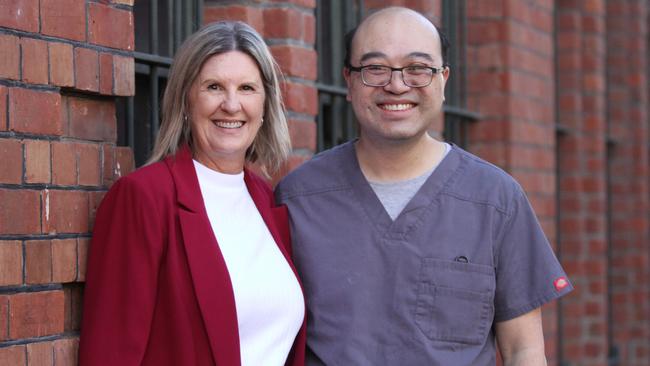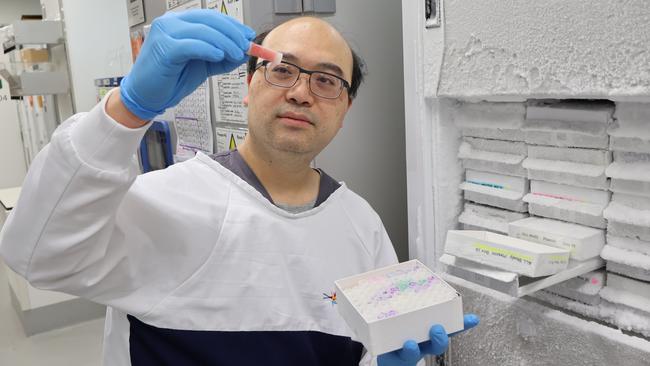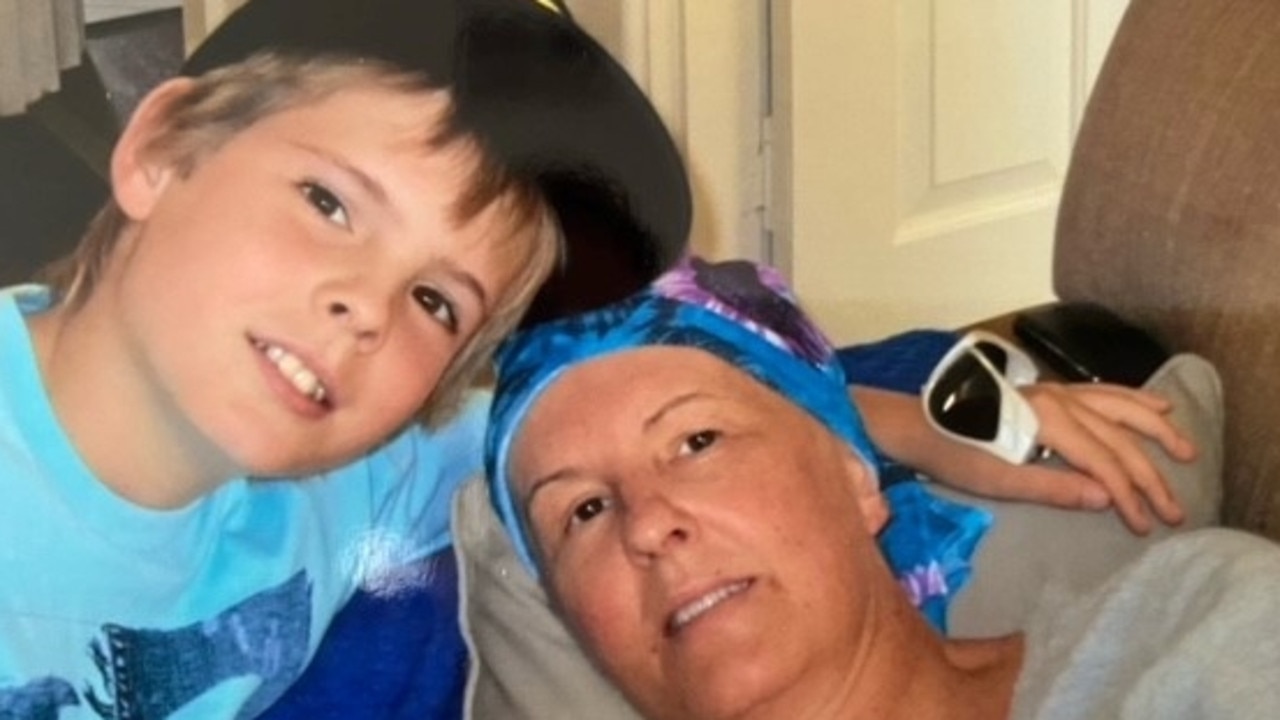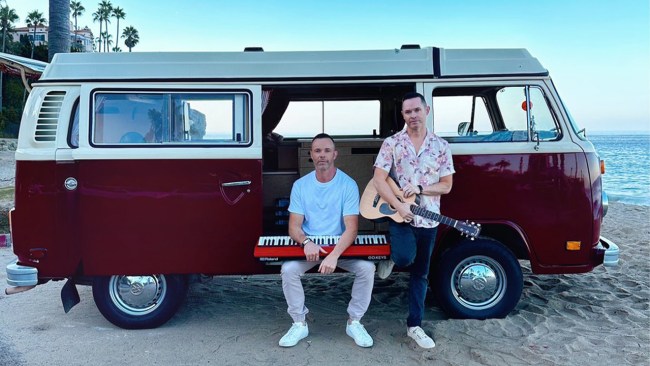Adelaide blood cancer doctor David Yeung shares reality of delivering diagnosis, ‘bad news’
A leading Adelaide blood cancer doctor shares the reality of breaking bad news to his patients – and the brave responses that ‘actually’ break his heart.

Lifestyle
Don't miss out on the headlines from Lifestyle. Followed categories will be added to My News.
A leading Adelaide haematologist has shared the heartbreak and complexities of telling a patient they have a blood cancer – as well as the strength he takes from his patients’ bravery.
The good doctor says no amount of medical training or practise makes delivering a leukaemia diagnosis easier.
At times David Yeung, who is both a clinician at the Royal Adelaide Hospital (RAH) and researcher at the South Australian Health and Medical Research Institute (SAHMRI), has had to phone an unsuspecting patient he has never met to deliver the life-changing news.
“The blood test might get drawn at 2pm and by the time the test is run it is 8pm, so here we have a result with a significant abnormality … we might have to say, ‘look, we need you to come to emergency because the blood counts are so abnormal that we think it would be dangerous to stay at home,” he said.

“It can be very difficult. The person doesn’t know me, they are not expecting the call … they might say, ‘you are not my GP, why are you calling me? Sometimes they even suspect it might be a prank or a scam.
“The next challenge is working out how much to tell them … should we actually get them in here, sit them down, give them a glass of water and then go through things, or, you know you lay it all down?
“My fear is always making them so nervous they’ll drive like a maniac down the freeway to get here, having a car accident on the way … my general approach is, ‘we can talk about it when you come in but I really need you to trust me on this … I’ll explain everything when you come in.
“But if they push me, I have to come clean. ‘I think this is leukaemia’ … obviously, you can imagine how shocked people are.
“Despite all our medical school training, it isn’t easy; the reality is you need to be gentle, be compassionate, be considerate and just try and get it done.”
Dr Yeung, who has specialised in blood cancers for the past decade, said it was crucial some patients were seen as quickly as possible.
“We to start some diagnostic processes but, more importantly, to give them an immediate platelet transfusion, if that’s applicable, to stop them from having a bleeding episode … into their gut or into their brain,” he said.
The latest statistics from the Leukaemia Foundation show around 135,000 people are living with blood cancer or a blood disorder in Australia today, with that number expected to double again by 2035.
Dr Yeung said prognosis and outcomes varied depending on the type of cancer, ranging from long-term survival rates of 85 to 90 per cent down to as low as 20 to 30 per cent.
However he said treatment options and treatments were continually evolving.
“One of the reasons I decided to become a blood cancer doctor is actually because the research is moving so fast and there are just so many things that we can offer our patients … there is so much happening,” he said.
“(We’ve) things like immunotherapy, things like Car T-cell therapy, where we take someone’s immune cells and train them to actually kill cancer cells … years ago, this kind of thing would seem like science fiction.
“These days we can use less toxic chemotherapy and more targeted drugs, such as small molecule inhibitors delivered by oral tablets, so patients don’t have to endure as many side effects.
“If leukaemia research continues on this trajectory, we’ll be able to offer people longer life and better quality of life during treatment and in post cancer care.
“I think we’ll progress to the point we don’t need to do stem cell transplants to keep patients in remission anymore.”
Adelaide mum-of-two Jo Dart appreciates more than most the significance of those advancements, crediting them – and her treating physician Dr Yeung – for her life.
Fourteen years ago, aged 44 and living in Whyalla, she got one of those dreaded, completely unexpected phone calls, following a routine blood test.
She had acute myeloid leukaemia (AML), a rare and aggressive cancer with the lowest survival rate of all leukaemias.

“It changed my life instantly that phone call … one moment life’s all on track and you’re happy, the next you’re stuck in a hospital room for months on end, not knowing if you’ll ever make it home.
“I said to (Dr Yeung), ‘you can fix this right?’, and he just looked at me and said he’d do his best. That’s when I thought ‘well maybe it can’t be fixed’.
“(But) I trusted him 100 per cent. We had a connection right from the start. He was honest, open and friendly and despite everything, we laughed.”
She beat the odds, returning to Whyalla before relocating to Adelaide two years ago where she is now in a fitting twist working as an accountant at SAHMRI.
“I am grateful daily … I often think about the research that’s kept me alive and is helping so many other people – without it and without (Dr Yeung), I certainly wouldn’t be here,” she said.
Dr Yeung tears up listening to his former patient speak.
“The good thing is, Jo made it but unfortunately, other patients are not so lucky,” he said.
“I often think how much less brave than my patients I am … if I’ve bad news to deliver and really don’t know how to do it … they look me in the eye and say, ‘look, Doc I knew this wasn’t working, but thank you very much for trying anyway’.
“That actually does really break my heart.”






